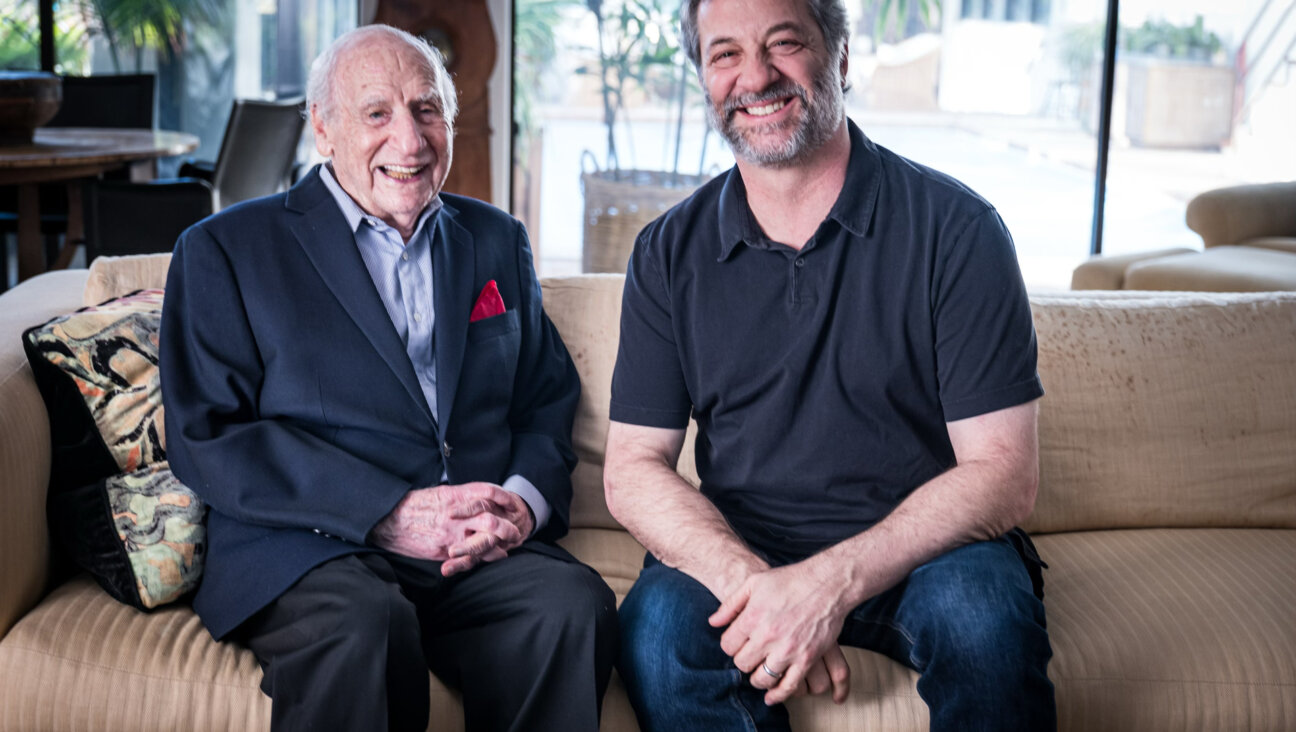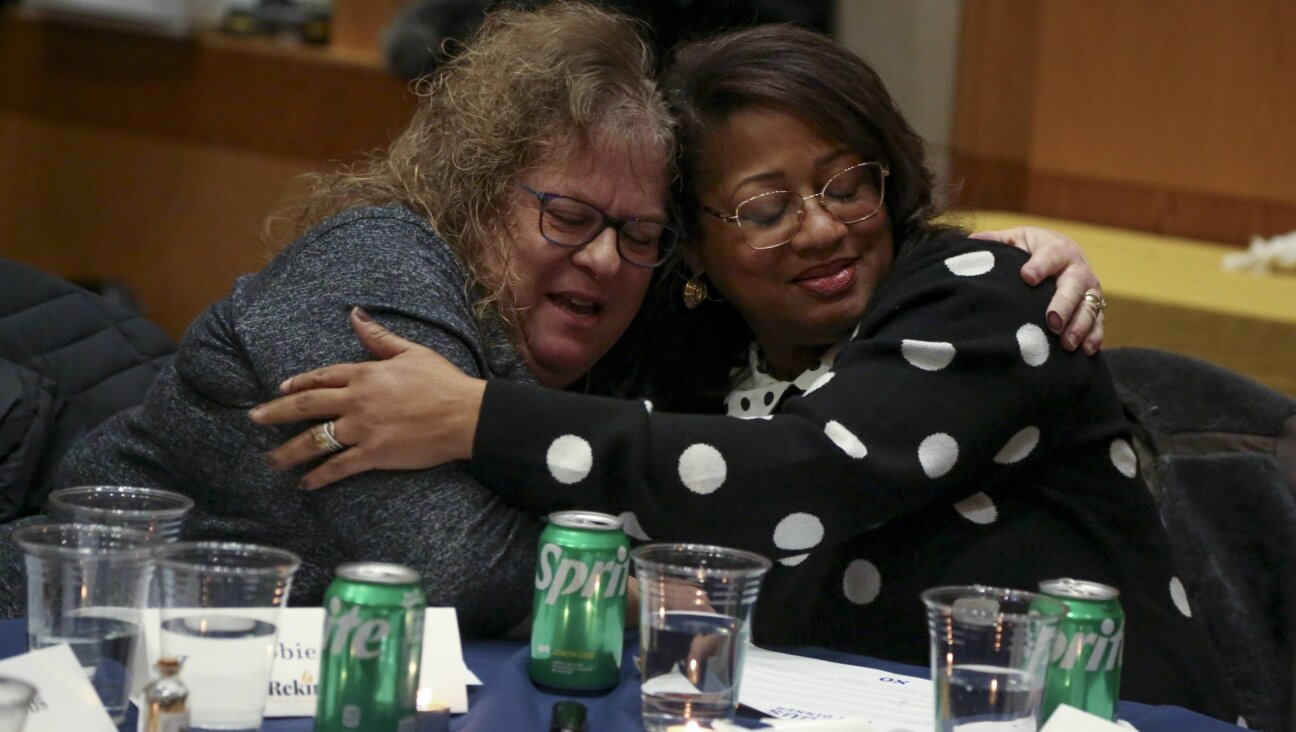Pearlstone Does Farm-to-Table Family Style

Image by Rhea Yablon Kennedy
At 9 a.m. on a summer Sunday, two dozen parents and children gathered in a grassy area. Around them stretched Pearlstone Center’s farm, lush with green plants, a rainbow of flowers and a golden patch of wheat.
A tall guy in a kippah stood up and started strumming a guitar. This was Jakir Manela, executive director of Pearlstone, an agency of the Associated: Jewish Community Federation of Baltimore. The event was the sixth annual Family Farm Camp, held over five days in early July. Manela served as Pearlstone’s founding farmer along with his wife, Netsitsah, and the couple are the parents of three pint-size participants.
Like the rest of the camp, the song session combined Judaism, farming and family participation. The group sang Modeh Ani, followed by Decomposition. The first is a musical version of the morning prayer, and the second teaches a playful lesson about composting and invites everyone to get down on the ground like earthworms.
But audience participation was a hard sell that morning. A handful of “worms” hit the ground on cue. Some kids played along on drums, while others roamed or asked their parents questions. Well after the start time, families were still strolling in.
Casey Yurow, Pearlstone’s program director, wasn’t deterred. He was ready with a big smile and a kickoff to the Farm to Table Extravaganza Harvest. “There’s going to be a bunch of harvesting going on,” he announced. “And the harvesting is going to be for our dinner tonight!”
Before they started, though, Yurow had a couple of requests. “Raise your hand if you are personally connected to agriculture,” he said. A few hands went up. “Raise your hand if you’re personally connected to farms or farming.” A few more. “Now,” he continued, “raise your hand if you eat food. Raise your other hand if you’re grateful for the food you get to eat.” Finally, all hands reached into the sunny air.
With that connection put on the table, families chose groups. One went off with Greg Strella, the farm director, to harvest wheat.
On the way, Strella’s group stopped at a tree bearing apples the size of ping-pong balls. The farmer explained that the tree is young and not ready for harvest yet. Even if the apples had reached the usual size, Pearlstone wouldn’t use them. They practice orlah, the biblical mandate that prohibits eating from a fruit tree in the first years after planting.
One kid pointed out a rotten apple. The group moved on.
Soon, they reached their destination: a patch of golden stalks covering about as much ground as a little-league baseball diamond. Strella demonstrated harvesting the wheat by holding stalks in one hand and cutting them with a short, curved blade. Each participant then took a stalk.

Image by Rhea Yablon Kennedy
Right there, distraction turned to focus. Each parent and child diligently stripped off the grains from his or her stalk, rolled them between hands to separate the wheat from the chaff, then blew on the grains to make the chaff fly away. They listened as Estrella explained that this was harvesting, threshing and winnowing. One boy calculated how many stalks could come from a 30-berry wheat stalk (900) and then how many could come next (27,000).
Dotted around the farm, other groups were also hard at work.
Under a picnic gazebo, all eyes were on a bike-powered blender turning basil into pesto. The biker’s toes barely touched the pedals on the down stroke, but he kept at it. At the pita station, kids rolled and cut. They adjusted their technique for sticky dough and taught the process to newcomers, then passed along their medallions for staff to cook on a griddle. In the strawberry jam area, two generations focused on slicing juicy gems and funneling them into bowls. In the kale patch, families filled bags of wide, green fronds.
In a shady spot by the lakefront sat an ad hoc creamery. Tweens had scissored piles of herbs into fine pieces while vinegar turned milk into a snowy-soft farmer’s cheese. The cheese-makers folded the ingredients together with salt, olive oil and honey.
“We’re seeing our kids play together, and singing, and celebrating,” said Manela. This alone is an accomplishment, considering 70 children attended this year, from infants to age 13. But Manela also watched bonds grow among parents. “We’re talking about our parenting struggles, we’re actually co-parenting together in some ways,” he explained.
The farm also has goats, chickens and sheep, as well as a butterfly garden and fruit orchards. The retreat center as a whole hosts 12,000 guests a year. Visitors include Baltimore City school students, a Buddhist meditation community, an organization for adoptive families and day camps. The Family Farm Camp brought 180 participants and staff this year, the largest for this program yet.
As noon approached, all eyes and stomachs turned to the bowls of pita, cheese, pesto and jam laid out nearby.
Standing a few feet from the farm-infused food, Yurow asked a familiar question: “How many of you are connected to farms?” This time, all hands went up immediately. Then, with a motzi (blessing over bread) and encouragement to eat slowly to savor the food, Yurow sent them off to eat.
Related recipes
Griddle Pita and Herbed Farmer’s Cheese
Rhea Yablon Kennedy teaches at Gallaudet University and lives in Washington, DC. Follow her on Twitter @RheaYKennedy. Her website is RheaKennedy.com.
















